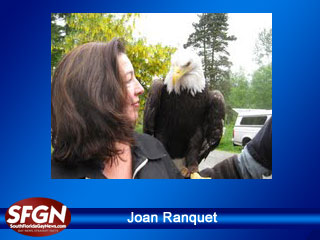Better Communication with Your Pets Now




As an animal communicator, my job is to translate what your pet is thinking or feeling. I use telepathy (the transference of pictures, words and feelings). Many people aren’t aware that we are all animal communicators; I have simply developed a skill.
Telepathy is a two-way street, at the very least; sometimes it’s a five-way stop. As much as people love to find out what their animal is thinking, it can be even more enlightening to know what it is we are actually sending. We are sending a lot of inner SPAM to our pets via our own thoughts and feelings about random things in life. This is an immediate picture that is sent, our pets in turn can either want to help the situation or act out as a result of our state of being.
We all are living with a certain degree of personal stress and we are all microcosms that can accidently absorb the global fear, anxiety and worry. Then we try to figure out why our well-behaved dog jumps on our dinner guests, or worse.
When we forget the simplicity and joy in life or are distracted, so many things get mixed up in translation and naughty behavior can result. My best advice is:
Say what you mean and mean what you say. Our animal companions are looking to us and listening to us at all times. We are their emotional leaders; we have to be the leader of the pack, herd, pride or flock. They are dependent upon us for their wellbeing. As I say in my book, Communication with all Life, Revelations of an Animal Communicator, we are of one mind.
When we say a command like “no,” or “come,” we have to commit to that intention. So many times I see someone say “no” to a small dog and then two seconds later they pick the dog up and kiss it because it’s so cute. What is that really saying? It’s saying “no, yes, you are the cutest, just do what you want.” Is that really providing safety/leadership for them? The answer is no.
Mentally we do the same thing: we say no and then we think that they’re just going to do it again. What mixed message is that non-committal command saying? It’s saying, “Go ahead, take over,” and nothing good can come out of that when in a challenging situation.
When you ask an animal to do something are you pleading? Are you hopeful? Frustrated? Are you saying it with great authority? Is it mixed? Do you have joyful expectation? Is it fun? Even if it’s a bath? Listen to your tone and see if you can’t have a little more expectation and authority. This also helps send a more positive image (picture) and security to them.
Consciously picking your words, nicknames, or stories is another key thing. I know, we all lose our tempers or to be funny we tell a story about our animal friend. But it is not just our story; we are making it forever their story, their mythology, and that story becomes bigger than them. They have to follow through with the epic behavior.
A check and balance of where we are emotionally is important, especially in challenging situations. Automatically, the pictures and the feelings follow the words. Saying something to get attention with great authority, expression, and emotional leadership is a great state change for you and your animal companion(s). It automatically sends the picture. Then you can create a new behavior pattern.



Very interesting full of information that was covered in the intensive. Some pages were blackout out.so I don’t really know how much I missed.
But all in all I think I do have an understanding of EFT
buy dapoxetine online pharmacy
Better Communication with Your Pets Now – Joan Ranquet
buy essays online reviews
Better Communication with Your Pets Now – Joan Ranquet
best medical school essay editing service
Better Communication with Your Pets Now – Joan Ranquet
law essay writing service
Better Communication with Your Pets Now – Joan Ranquet
which is the best essay writing service
Better Communication with Your Pets Now – Joan Ranquet
essay writing website reviews
Better Communication with Your Pets Now – Joan Ranquet
help writing college application essay
Better Communication with Your Pets Now – Joan Ranquet
custom essay cheap
Better Communication with Your Pets Now – Joan Ranquet
no prescription online pharmacy ua products percocet
Better Communication with Your Pets Now – Joan Ranquet
viagra in uk pharmacy
Better Communication with Your Pets Now – Joan Ranquet
tadalafil tablets
tadalafil tablets
online viagra canadian pharmacy online
online viagra canadian pharmacy online
sildenafil 100mg sale
sildenafil 100mg sale
cialis online pharmacy australia
cialis online pharmacy australia
viagra pills pharmacy
viagra pills pharmacy
jon jones cialis
jon jones cialis
cozumel pharmacy valium
cozumel pharmacy valium
where can i buy viagra otc
where can i buy viagra otc
supreme suppliers cialis
supreme suppliers cialis
100 mg cialis tadalafil
100 mg cialis tadalafil
epidural gabapentin
epidural gabapentin
tamoxifen zweten
tamoxifen zweten
metformin 1996
metformin 1996
50 units of semaglutide is how many mg
50 units of semaglutide is how many mg
switching from ozempic to rybelsus
switching from ozempic to rybelsus
can you mix cephalexin with juice
can you mix cephalexin with juice
flagyl bruising
flagyl bruising
does keflex treat sinus infections
does keflex treat sinus infections
best price generic viagra online
best price generic viagra online